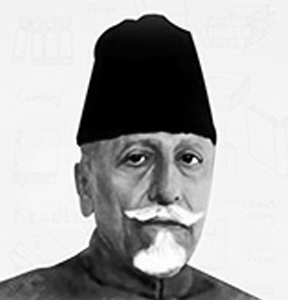
Abul Kalam Azad, is a Bharatiya scholar, freedom fighter, and the first Education Minister of Bharat. Indeed, a visionary leader who played a pivotal role in Bharat’s freedom struggle, Kalam worked tirelessly towards the promotion of education and communal harmony in Bharat. Abul Kalam Azad was a prolific writer and a well-known journalist who wrote extensively on social and political issues. He was also a staunch advocate of secularism and played a critical role in the framing of Bharat’s Constitution. As the first Education Minister of Bharat, he worked tirelessly towards the promotion of education and the establishment of several prestigious institutions, including the Indian Institutes of Technology and the University Grants Commission. Owing to his impeccable contributions, Abul Kalam Azad is remembered as a visionary leader who dedicated his life to the progress and prosperity of Bharat.
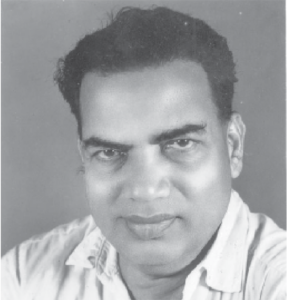
A.K. Gopalan (1897-1977) was a prominent Bharatiya communist leader, who was a Member of Parliament and a Member of the Legislative Assembly (MLA) in the Bharatiya state of Kerala. He was also a leader of the Communist Party of India (CPI) and a member of the Communist Party of India (Marxist) (CPI(M)) from its founding in 1964.
Gopalan was an active participant in the Bharatiya freedom struggle against British colonialism. He joined the Indian National Congress in 1923 and later the Indian Communist Party in 1927. He was arrested and imprisoned several times for his political activities, including a term of rigorous imprisonment during the British colonial era.
After Bharat’s independence in 1947, Gopalan was a Member of Parliament (MP) in the Lok Sabha, representing the Calicut constituency. He also served as a Member of the Legislative Assembly (MLA) in the Kerala state assembly.
Gopalan was a leading figure in the Communist Party of India (CPI) and was elected as the party’s general secretary in 1951. He was a member of the Communist Party of India (Marxist) (CPI(M)) from its founding in 1964.
Throughout his political career, Gopalan was an advocate for the rights of the working class and the poor, and he worked to improve their living and working conditions. He was known for his speeches and writings on Marxism, communism, and the Bharatiya freedom movement.
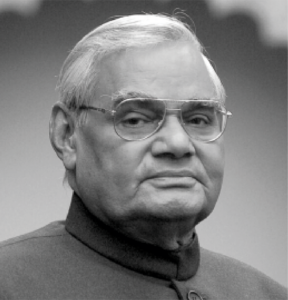
Atal Bihari Vajpayee (25 December 1924) was an Bharatiya politician and statesman who served three terms as the Prime Minister of Bharat. He was a co-founder and senior leader of the Bharatiya Janata Party (BJP) and a member of the Rashtriya Swayamsevak Sangh, a Hindu nationalist volunteer organisation. He was a poet, a writer and also a Member of Parliament for over five decades, having been elected 10 times to the Lok Sabha and twice to the Rajya Sabha. He served as the Member of Parliament for Lucknow, and retired from active politics in 2009 due to health concerns. He was one of the founding members of the Bharatiya Jana Sangh (BJS), and served as its president from 1968 to 1972. During his tenure as Prime Minister, Bharat conducted the Pokhran-II nuclear tests in 1998, and he sought to improve diplomatic relations with Pakistan, through his travels to Lahore, and later, the Kargil War, by inviting Pakistan’s President, Pervez Musharraf to Bharat for a summit at Agra. The Birthday of Vajpayee was declared as Good Governance Day in 2014. In 2015, he was awarded Bharat Ratna, the highest civilian honor in Bharat by President Pranab Mukherjee.

Widely regarded as the “Father of the Bharatiya Constitution”, Dr Bhimrao Ramji Ambedkar, (a.k.a Babasaheb Ambedkar), was a social reformer, jurist, and politician in Bharat.
Coming from a humble background, he faced discrimination and societal barriers throughout his life. Despite these challenges, Ambedkar went on to become one of the most influential leaders in the Bharatiya independence movement and the chief architect of the Bharatiya Constitution.
Ambedkar worked tirelessly to eradicate the caste system and the societal prejudices that it perpetuated, and he is considered the leader of the Dalit (formerly known as “untouchable”) community in Bharat.
Ambedkar also played an instrumental role in the formation of independent Bharat. He was appointed as the nation’s first Law Minister and played an important role in drafting the Bharatiya Constitution, which was adopted on 26 November 1949. The Constitution provided constitutional guarantees and protections for a wide range of civil liberties for individual citizens, including freedom of religion, the abolition of untouchability and the prohibition of all forms of discrimination.
Ambedkar was also an advocate for women’s rights, and he was one of the first members of the Constituent Assembly to insist that the Constitution should provide for gender equality.
His birthday, 14 April, is celebrated as Ambedkar Jayanti and is a public holiday in Bharat.
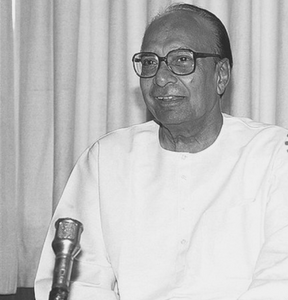
Biju Patnaik was a visionary leader, who tirelessly worked towards the welfare of his people and the promotion of industrialisation and modernisation in Odisha. As a celebrated aviator who played a crucial role in the Indonesian independence movement, Patnaik was awarded the title of ‘Bhoomi Putra’ (Son of the Soil) by the Indonesian government. He was also instrumental in the establishment of several prestigious institutions, including the Indian Institute of Technology, Bhubaneswar, and the National Institute of Technology, Rourkela. Biju Patnaik’s contributions to the development and progress of Odisha continue to inspire generations and is remembered as a visionary leader who dedicated his life to the welfare of his people.
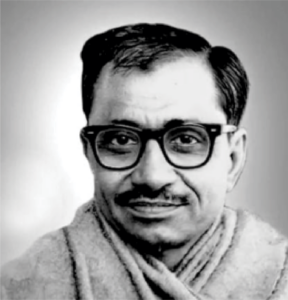
Deendayal Upadhyaya was a philosopher, economist, sociologist, historian, journalist, and political scientist who served as the General Secretary of the Bharatiya Jana Sangh, which later became the Bharatiya Janata Party (BJP). He was born in 1916 in the village of Bhukara, British Bharat and studied at Allahabad University, where he became a professor of political science.
He joined the Jana Sangh in 1951 and was appointed as the General Secretary of the party in 1953 and was instrumental in building the organisational structure of the party and shaping its ideology. Upadhyaya’s ideas and writings, which he called “Integral Humanism”, formed the cornerstone of the Jana Sangh’s ideology. His philosophy emphasises on the integration of the individual and society, combining elements of socialism, capitalism, and Gandhism. Upadhyaya was a strong advocate for economic self-reliance, rural development and decentralisation of power. He died in 1968 under mysterious circumstances.
Today, his ideas and principles continue to influence the ideology and policies of the BJP and other organisations affiliated with it.
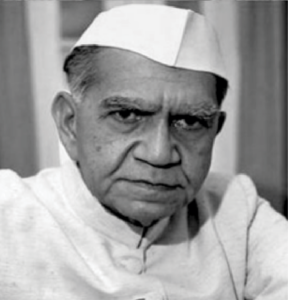
Fakhruddin Ali Ahmed (13 May 1905 – 11 February 1977) was the fifth President of Bharat, serving from 1974 to 1977. A lawyer and politician who had long association with the Indian National Congress, Ahmed was the finance minister of Assam in the Gopinath Bordoloi ministry in 1939 and again from 1957 to 1966 under Bimala Prasad Chaliha.
He was also cabinet minister by Prime Minister Indira Gandhi in 1966 and in charge of various ministries such as Power, Irrigation, Industries and Agriculture. During his tenure as president, Ahmed imposed an Emergency in 1975 and gave his assent to numerous ordinances and constitutional amendments which restricted civil liberties and allowed Indira Gandhi to rule by decree.
His legacy is remembered for the emergency and considered a rubber-stamp president. He died in office in 1977, was accorded a state funeral and is buried in a mosque near the Parliament House in New Delhi.
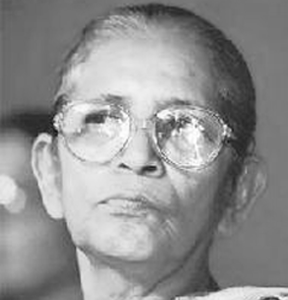
Geeta Mukherjee is an accomplished and inspiring figure in the field of science and technology. With a PhD in Computer Science, she has made significant contributions to the development of cutting-edge technologies and has been a driving force behind many groundbreaking research projects. Throughout her career, Geeta has demonstrated a deep commitment to empowering women and other underrepresented groups in the field of STEM. Beyond her impressive professional achievements, she has volunteered with numerous charities and non-profit organisations and has been recognised for her efforts to make a positive impact on the lives of others. Geeta Mukherjee is a truly inspiring individual whose work has had a profound impact on the field of science and technology. Her commitment to making the world a better place serves as an inspiration to us all.
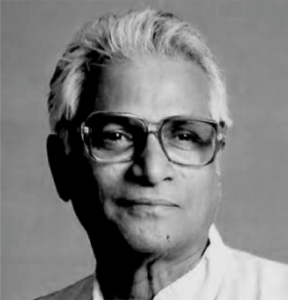
George Mathew Fernandes born on 3 June 1930 was a Bharatiya trade unionist, statesman, and journalist, who served as the 22nd Defence Minister of Bharat from 1998 until 2004. He was a member of Lok Sabha for over 30 years, starting from Bombay in 1967 till 2009 mostly representing constituencies from Bihar. He was a key member of the Janata Dal and the founder of the Samata Party, now led by Uday Mandal its President. He held several ministerial portfolios including communication, industry, railways, and defense.
In 2020, he was posthumously awarded the Padma Vibhushan, Bharat’s second-highest civilian award. A native of Mangalore, Fernandes was sent to Bangalore in 1946 to be trained as a priest. In 1949, he moved to Bombay, where he joined the socialist trade union movement. Becoming a trade union leader, Fernandes organised many strikes and bandhs in Bombay in the 1950s and 1960s while working with the Indian Railways. He defeated S K Patil of the Indian National Congress in the 1967 parliamentary elections from the Bombay South constituency. He organised the 1974 Railway strike when he was President of the All India Railwaymen’s Federation.
In 1977, after the Emergency had been lifted, Fernandes won the Muzaffarpur seat in Bihar in absentia and was appointed Union Minister for Industries. During his tenure as union minister, he ordered American multinationals IBM and Coca-Cola to leave the country, due to investment violations. He was the driving force behind the Konkan Railway project during his tenure as railway minister from 1989 to 1990. He was a defence minister in the National Democratic Alliance (NDA) Government (1998–2004) when the Kargil War broke out between Bharat and Pakistan, and Bharat conducted its nuclear tests at Pokhran.
A veteran socialist, Fernandes has been dogged by various controversies, including the Barak Missile scandal and the Tehelka affair. George Fernandes won nine Lok Sabha elections from 1967 to 2004. He was awarded the Padma Vibhushan Bharat’s second-highest civilian award posthumously in 2020 in the field of Public Affairs.
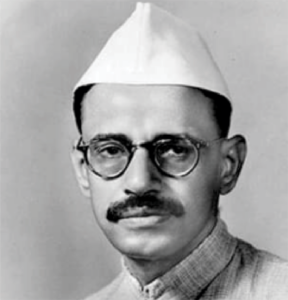
Gulzarilal Nanda (4 July 1898 – 15 January 1998), was a politician and economist who served as the Prime Minister of Bharat twice, first for a brief period of 13 days in 1964 and then for another brief period of 11 months in 1966-67. He was born in Jammu in 1898 and educated at the Forman Christian College in Lahore and the University of Allahabad.
He was a committed social worker and trade unionist and was heavily involved in Bharat’s independence movement. Nanda had been a Cabinet minister for Labour and Employment, Food and Agriculture, Community Development, and Rehabilitation in Nehru government. He was also appointed as Deputy Chairman of the Planning Commission.
After the death of Prime Minister Lal Bahadur Shastri in 1966, Nanda was appointed as his successor and served as Prime Minister until Indira Gandhi was elected as leader of the Congress party and took over as Prime Minister. Despite his brief tenure as Prime Minister, Nanda was widely respected for his integrity, humility and commitment to social justice. He received the Bharat Ratna, Bharat’s highest civilian award in 1997 for his contribution to the nation.
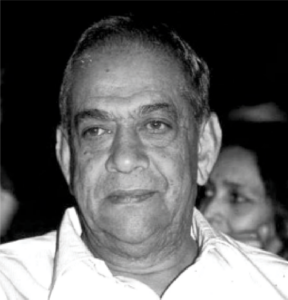
Indrajit Gupta (18 March 1919) was an Bharatiya politician who belonged to the Communist Party of India (CPI). He served as Union Home Minister in the United Front government from 1996 to 1998 under Prime Ministers, H. D. Deve Gowda and I. K. Gujral. He was a Member of the Lok Sabha for 37 years and was elected 11 times, being the longest-serving Member of the Lok Sabha. He served on several parliamentary committees and was Chairman of the parliamentary standing committee on defense in 1995-1996 and the Chairman of the committee on subordinate legislation from 1999 until his death. He received the ‘Outstanding Parliamentarian’ award in 1992 and after his death, President K.R. Narayanan praised him for his simplicity, democratic outlook, and deep commitment to values.
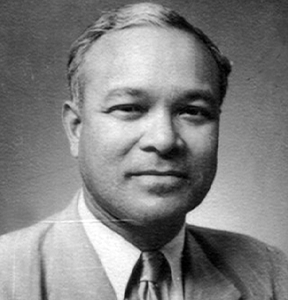
Jaipal Singh Munda was a prominent Bharatiya politician, activist, and athlete who dedicated his life to fighting for the rights of indigenous people. Born in 1903 in Chhota Nagpur, he belonged to the Munda tribe and grew up witnessing the injustices faced by his community. Jaipal Singh Munda was not only a political leader but also a successful sportsman, excelling in shot put and discus throw at the national level. He was the captain of the Indian hockey team that won a gold medal at the 1928 Amsterdam Olympics. In addition to his contributions to sports, he played a pivotal role in the formation of the All India Tribal Federation and was instrumental in drafting the Indian Constitution. He was also the first tribal leader to be elected to the Bharatiya parliament. Jaipal Singh Munda’s leadership in both politics and sports stands as an example of the power of determination and commitment in bringing about meaningful change.
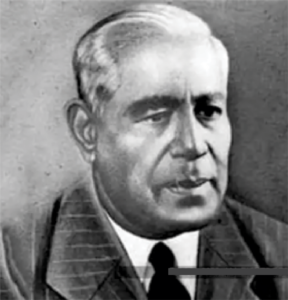
John Matthai (22 September 1948 – 1 June 1950) was an economist and Bharat’s first Railway Minister and Finance Minister. He graduated in economics from the University of Madras, served as a Professor there, and later Headed the Economics department.
As Bharat’s Finance Minister, he presented two Budgets but resigned following the 1950 Budget in protest against the increasing power of the Planning Commission and P. C. Mahalanobis.
He was the first Chairman of the State Bank of India, the founding President of the Governing Body of the National Council of Applied Economic Research and served as Vice Chancellor of the University of Mumbai and the University of Kerala.
An awardee of Padma Shri and the Padma Vibhushan by the Bharatiya Government, John Matthai was honoured by NCAER in 2019 by naming the office building as John Matthai Tower in memory of him.
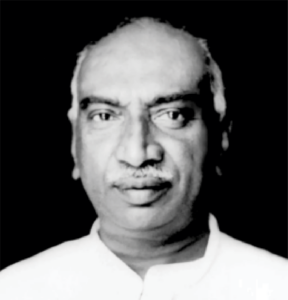
K. Kamaraj (15 July 1903 – 2 October 1975) was a politician and administrator who served as the Chief Minister of Tamil Nadu for nine years, between 1954 and 1963. He was born in 1903 in Virudhunagar, Tamil Nadu and started his political career as a member of the Indian National Congress.
Kamaraj was one of the most influential leaders in Congress during his time, and served as the President of the Indian National Congress twice, between 1964 and 1967. He played a major role in Bharatiya politics, especially in the state of Tamil Nadu and was a key figure in the Bharatiya independence movement. Kamaraj was known for his simplicity, honesty and his mass appeal and often referred to as the “Kingmaker” for his role in the Congress and was responsible for elevating Lal Bahadur Shastri and Indira Gandhi to the Prime minister’s office.
He played a pivotal role in making free education accessible to all children in the state of Tamil Nadu, which earned him the title of “Kaliyuga Karna” meaning “Karna of the modern era” after the benevolent king in Mahabharata.
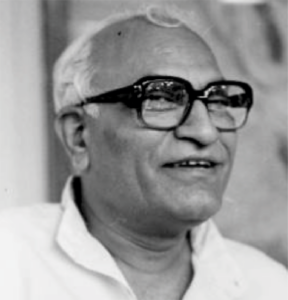
Madhu Dandavate (21 January 1924) was an Bharatiya physicist and socialist politician, who served as Minister of Railways and Finance in Bharat. He was a Member of Parliament from Rajapur in Maharashtra from 1971 to 1991. As the Railway Minister, from 1977 to 1979, he initiated several improvements to make the Railway more comfortable for passengers, including providing cushioned seats in the second-class compartment. He was a prominent opposition leader and socialist politician, respected for his integrity, knowledge, simplicity and pragmatism. He was a leader of a Satyagraha campaign against Portuguese imperialism in Goa in 1955 and one of his significant contributions as a parliamentarian was the incorporation of a safety clause to allow dissent in the Anti-Defection Law of 1985. He also served as the Deputy Chairman of the Planning Commission from 1990 to 1998. Historian Ramachandra Guha considers him among the few ministers who shall be remembered for having carried out programmes that radically reshaped the lives of their people.
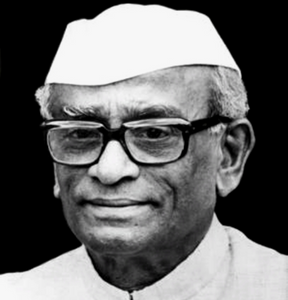
Neelam Sanjiva Reddy is a Bharatiya who served as the sixth President of India from 1977 to 1982. Born in 1913 in Andhra Pradesh, he began his political career at a young age and quickly rose through the ranks of the Indian National Congress. Throughout his long and illustrious career, Neelam Sanjiva Reddy was known for his integrity, humility, and dedication to public service. He held a number of important posts, including Speaker of the Lok Sabha, the lower house of the Bharatiya Parliament, and Governor of the states of Uttar Pradesh and Karnataka. As President of Bharat, Neelam Sanjiva Reddy earned widespread respect for his wisdom, diplomacy, and commitment to upholding the values of democracy and social justice. He was widely regarded as a statesman of the highest order, and his tenure in office is remembered as a time of stability and progress for the country. His legacy is a testament to the power of integrity, compassion, and a deep sense of commitment to the public good.
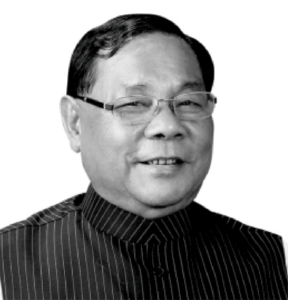
Purno Agitok Sangma born on 1 September 1947 was a Bharatiya politician who served as the Chief Minister of Meghalaya from 1988 to 1990 and Speaker of the Lok Sabha from 1996 to 1998. He was the candidate for the 2012 Bharatiya presidential election, supported by BJP and AIADMK.
He was awarded the Padma Vibhushan, Bharat’s second highest civilian award, posthumously in 2017 in the field of Public Affairs and was the first recipient of Padma Vibhushan from Meghalaya. In 1973, Sangma became Vice-President of the Pradesh Youth Congress in Meghalaya and became the General Secretary of the party in 1975. He served in that position from 1975 to 1980. In 1977, he was elected to the 6th Lok Sabha from the Tura constituency in Meghalaya and represented the same constituency multiple times, from 1977-1988, 1991-2008, and 2014-2016. The breaks in 1988 and 2008 were caused by his return to Meghalaya state politics. He became the Speaker of Lok Sabha in 1996.
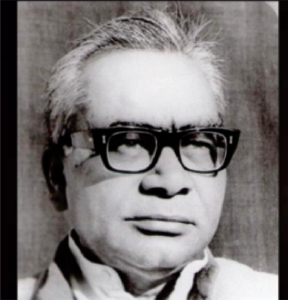
Dr. Ram Manohar Lohia was an Bharatiya freedom fighter, political leader, and socialist thinker. He was born in 1910 in Akbarpur, British Bharat, and educated at the University of Calcutta and the University of Berlin. Lohia was an active participant in Bharat’s struggle for independence and was arrested several times by the British government for his political activities.
After Bharat’s independence, he became a prominent leader of the socialist movement in Bharat, and was instrumental in the formation of several socialist political parties. He was also a prolific writer, and his works covered a wide range of subjects including economics, politics, and sociology.
Lohia was a strong critic of the Congress party and its leaders, including Jawaharlal Nehru and Indira Gandhi, and was a vocal advocate for the rights of marginalised communities, particularly the Dalits and women. He died in 1967, but his ideas continue to influence the political and social discourse in Bharat. He is often referred to as “Doctor Sahab” by his followers and admirers.
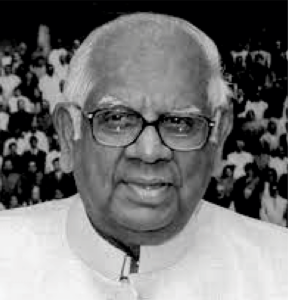
Somnath Chatterjee born on 25 July 1929, was a Bharatiya politician who was associated with the Communist Party of India (Marxist) for most of his life, though he had been a non-affiliated independent during his last decade.
He was the Speaker of the Lok Sabha (House of the People) from 2004 to 2009. Somnath was educated at Mitra Institution School, Presidency College, and then the University of Calcutta in Calcutta. He also attended Jesus College, Cambridge, and graduated with a B.A. in 1952 and an M.A. in 1957, both in law, has been awarded an honorary fellowship by the college in 2007. He was called to the bar from the Middle Temple in London and took up legal practice as an advocate at the Calcutta High Court before entering active politics.
Somnath Chatterjee was a member of the Communist Party of India from 1968 to 2008. He became a Member of the Lok Sabha in 1971 when he was elected for the first time as CPM (Marxist Communist) candidate from Burdwan (Lok Sabha constituency). Subsequently, he was re-elected nine times, From 1989 until 2004 he was the leader of his party in the Lok Sabha. He was elected for the tenth time in 2004 as a member of the 14th Lok Sabha from the Bolpur Lok Sabha constituency, which is considered to be a CPI(M) stronghold.
Following the 2004 election, he was appointed the pro tem speaker, and subsequently, on 4 June 2004 he was unanimously elected as the Speaker of the 14th Lok Sabha. He was the second pro tem Speaker after Ganesh Vasudev Mavalankar to achieve this feat.

Shyama Prasad Mukherjee was an Bharatiya political leader, barrister, and academic from Bengal. He is best known for being a member of the Indian National Congress, and later as the founding President of Bharatiya Jana Sangh which later evolved as Bhartiya Janata Party (BJP) one of the major political parties in Bharat. He was born in 1901 in Kolkata and obtained his law degree from the University of Calcutta. He started his political career as a member of the Indian National Congress and was appointed as the Minister for Industries and Supply in the cabinet of Jawaharlal Nehru.
Mukherjee became increasingly critical of the Congress party’s policies and resigned from his position in 1951 to form the Bharatiya Jana Sangh, which later became the Bhartiya Janata Party (BJP), one of the major political parties in Bharat.
He was elected as a member of the Rajya Sabha (Council of States) in 1952, and later, served as the President of the Akhil Bharatiya Hindu Mahasabha (ABHM) between 1952 and 1953.
In 1953, he protested against the Nehru government’s decision to provide special status to the state of Jammu and Kashmir and entered the state against the permit system which was then in effect, and was arrested.
His legacy continues to be remembered and honored by many, particularly in the political party he founded, the Bharatiya Janata Party (BJP). He is widely regarded as a hero for his contributions to the Bharatiya nationalist movement and his unwavering commitment to the protection of Hindu rights and interests.
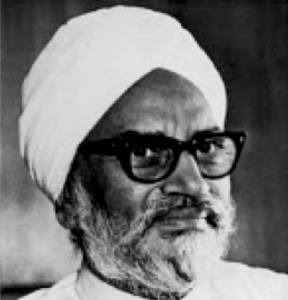
Sardar Swaran Singh (19 August 1907) was a long-serving Union Cabinet Minister in Bharat and served as the President of the National Congress in 1969 and 1978. He was also Bharat’s External Affairs Minister, and signed the Treaty of Peace, Friendship, and Cooperation between Bharat and the Soviet Union in 1971. He also lead the Bharatiya delegation to the UN General Assembly that year. In 1976, during the National Emergency, he chaired a committee that recommended changes to the Bharatiya Constitution, which were later incorporated through the 42nd amendment in 1977. He was also awarded the Padma Vibhushan, the second-highest civilian award, in 1992.
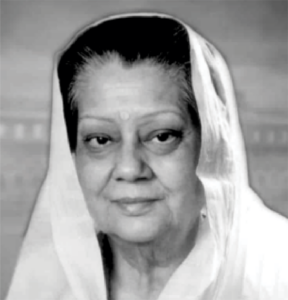
Vijaya Raje Scindia was born on 12 October 1919. She was born Lekha Divyeshwari Devi and known popularly as the Rajmata of Gwalior, was a prominent Bharatiya political personality. In the days of the British Raj, as the consort of the last ruling Maharaja of Gwalior, Jivajirao Scindia, she ranked among the highest royal figures of the land. In later life, she became a politician of considerable influence and was elected repeatedly to both houses of the Bharatiya parliament. She was a member of the Bharatiya Janata Party.
Vijayaraje was initiated into electoral politics in 1957 when she contested and won the Guna Lok Sabha seat in Madhya Pradesh on a Congress ticket. Five years later, she won a Congress ticket from Gwalior. Later, she quit the Congress and won the Guna seat in 1967 on Swatantra Party’s ticket. She soon joined Bharatiya Jan Sangh and resigned from Lok Sabha to take part in state politics. She won the Karera assembly seat in Madhya Pradesh as the Jan Sangh candidate in 1967 and plunged headlong into state politics.
Jan Sangh defied the Indira wave in the 1971 Lok Sabha polls to win 3 seats in the Gwalior region – Vijaya Raje Scindia from Bhind, Vajpayee from Gwalior, and Madhavrao Scindia from Guna, though he later left the party. Vijayaraje Scindia did not contest the Lok Sabha elections in 1977 and 1984 and lost to Indira Gandhi in Rae Bareli in 1980. In 1989, she won from Guna as a member of the Bharatiya Janata Party (BJP) and retained the seat in 1991, 1996, and 1998.
Vijayaraje came to the forefront of the BJP leadership in 1980 when she was made one of its vice presidents.
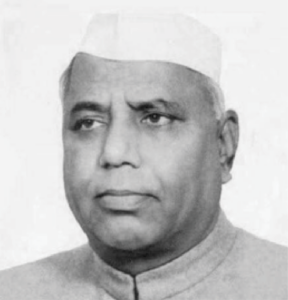
Yashwantrao Balwantrao Chavan (12 March 1913) was an Bharatiya politician and social activist, who served as the first Chief Minister of Maharashtra, after the state was created by the division of Bombay. He was a prominent leader of the Congress party, known for his work in promoting social democracy and co-operatives for farmers. During the 1960s and early 70s, he was referred to as the “New Shivaji” for his powerful and influential leadership. He holds the record of being the only leader from Maharashtra to hold four of the most important portfolios in the Union government – Home, External Affairs, Defense, and Finance. He also held the Defense portfolio during the Indo-Pakistan War of 1965, while serving under the Lal Bahadur Shastri government. In 1982, he was appointed as the Chairman of the 8th Finance Commission of Bharat.